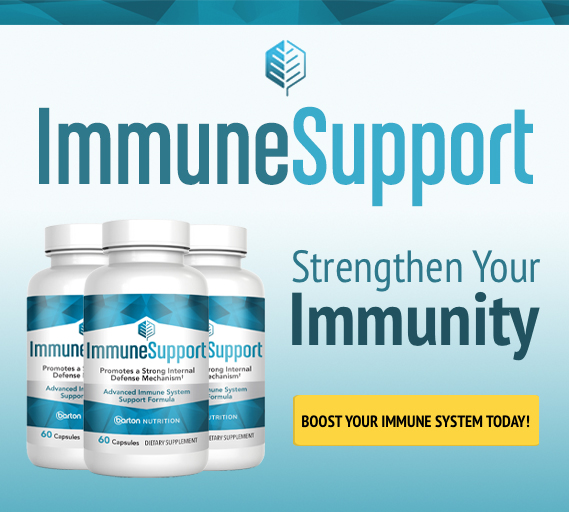How to Naturally Clean Your Small Intestine to Heal SIBO
Have you ever heard of SIBO? It sounds like a new video game on the Internet. Actually, it’s an intestinal problem that’s been around for a long time. SIBO is an acronym that stands for Small Intestine Bacterial Overgrowth, or too much bacteria in the intestines.
Aren’t the Intestines Normally Full of Bacteria?
We often consider the intestines to be full of bacteria. Truthfully, bacteria are only found in the large intestine. Our stool consists of about 50% bacteria, and only about 15% is the “roughage” or fiber we eat in our food. The rest is water and soluble material.[1] There are trillions of different kinds of bacteria in every bowel movement. Which is why it is so easy to think our bowels are filled with them.[2] However, amazingly, the small intestine is clean, so clean, in fact, it’s considered “sterile.”[3] There are more bacteria on your hands after you wash them with “anti-bacterial” soap, than there are in your small intestines – by 1000 times! Only the colon, or large bowel, is filled with bacteria.
Why Is the Small Intestine Sterile?
When we are digesting and absorbing our food, we don’t want to have to compete with bacteria. These bacteria are very small, thousands of them can fit into one of our cells, but they can grow fast. For example, E. coli bacteria can reproduce very fast. If you had one E. coli bacteria in your small intestine, fed it all the food it wants, and took away all its waste, the colony would be as big as the Earth in only 48 hours! No kidding! This is hard to compete with! The point is you digest food, break it down into component parts and as a result provide exactly what growing bacteria need.
As a result, you have to sterilize your small bowel so you can absorb the nutrients first. Then you send the waste, the stuff you don’t want, or can’t digest, into your large bowel, where the bacteria can feast on the leftovers.
How Does the Small Intestine Get So Clean?
This is such an important concept. When we eat, there are always bacteria in our food, in our mouth, in our saliva, and so forth. We can’t avoid it.
- So, we have stomach acid as a first barrier preventing bacteria from entering the intestine.
- In addition, there are enzymes that break down the proteins in our food. These enzymes also destroy the proteins of the bacteria.
- Next, our immune system is continuously monitoring the intestines, and secreting antibodies to disable and destroy bacteria.
- And, last, the small intestines are washed-out after every meal. Every millimeter is scrubbed with “anti-bacterial soap” (see below). All the food residue and bacteria are then washed down into the large bowel, or large intestines.
- At the bottom of the small intestines there is a valve, the ileocecal valve. This valve lets fluid into the large intestine at the right time. But it also prevents anything from going backwards into the small intestine from the large bowel.
With All This Cleaning, How Can SIBO Happen?
Several factors can lead to SIBO:
- The wrong kind of bacteria (bad bacteria) is in our food.
- The stomach isn’t working to make acid and enzymes.
- The small intestine doesn’t clean out after a meal.
- The immune system isn’t killing the bacteria that aren’t supposed to be there.
- The ileocecal valve doesn’t work, letting bacteria up into the small intestine.
By far, the most common reason of SIBO is eating too frequently. We have been told that we should be eating 5 small meals per day. This way, our stomach never gets empty, our sugar never drops low, and we never get overly hungry. However, eating throughout the day for our health a myth! If the stomach is always full, then food is constantly sent into the small intestines, and there is never time to clean the small intestines out.
Have you ever heard your stomach growling when you’re hungry? This is the small intestine “cleaning house.” It doesn’t happen while there is food in the intestines waiting to be absorbed. Many people think when they hear the gurgling it means they need to eat. Actually, it would be better not to eat. Instead, it is better for your health to wait an hour or so until your intestines are all clean. A better diet would be to have at least 4 hours between meals. This allows your intestines to absorb all the food and clean itself out.
What Happens When A Person Gets SIBO?
A progression of the symptoms include: [4]
- Gas
- Bloating
- More bloating
- Feeling of fullness
- Pain
- Diarrhea and/or constipation
- Nausea
- Bloating
- Vomiting
- Malnutrition
- Weight loss
- Joint pain
- Fatigue
- More bloating
- Rashes
- Acne
- Eczema
- Asthma
- Depression
- Rosacea
People with SIBO will typically say, “Every time I eat, I feel bloated — no matter what I eat!” Some have belching, but they do not pass gas from the rectum. The other symptoms and problems are associations due to inflammation or malnutrition.
Why All the Bloating?
Bacteria digest sugar from your food to make gas. Normally, we absorb all the sugar, only giving bacteria in the colon fiber to eat. This fiber is broken-down into sugar in the colon, so the average person passes gas fourteen times per day. However, when the gas is in the small intestine, there is nowhere for it to go so we just bloat and feel horrible.
Which Bacteria Cause SIBO?
The same bacteria that normally inhabit the colon can start growing in the small intestine and produce the associated problems. These bacteria are found in the food we eat, or come up from the colon. In the colon, they don’t do any damage, but in the small intestine the bacteria can be devastating.
The type of bacteria is very important. Some bacteria will digest fats, leading to fat malabsorption (including fat-soluble vitamins) and diarrhea. Other bacteria digest carbohydrates and produce gas. Still other bacteria make toxins that can cause leaky gut or celiac disease, preventing absorption of nutrients.[5] Almost all of them take the nutrients we need, and give back only waste products that can hurt us.
How Can I Treat SIBO?
Since you already know how and why it happens, the treatment will be obvious.
- Fix the stomach acid
- Fix the intestinal cleaning
- Get rid of the bacteria
- Block inflammation
How Do I Increase My Stomach Acid?
We normally produce stomach acid with each meal. The truth is, your stomach must be highly acidic to break down the food you’re consuming and for proper absorption. However, we have a problem in modern society of too much food. We are told to eat 5 small meals per day, and never reset our stomach. With food always in the stomach, the acid-producing cells (parietal cells) make low levels of acid. Acid in the stomach functions to kill bacteria (and help absorption). But if the balance of stomach acid is low, bacteria is allowed to pass through the stomach into the small intestines.
The key, then, is to eat fewer meals. An empty stomach resets all the digestive mechanisms. An empty stomach allows for proper acid production for the next meal. It is a good idea to allow at least 4 hours between meals. Give your stomach time to be empty, and reset the parietal cells.
What Can I Do to Have Cleaner Intestines?
If you have ever heard your stomach growling, that is the cleaning process. The intestines will produce lots of cleaning fluid, and the normal gas will gurgle through as the intestines are scrubbed. This process requires enough fluid, so drinking water is helpful. It also requires an empty bowel, so not eating is the most important part. It isn’t necessary to eat when your stomach is growling. In fact, it’s better to wait until the cleaning process is finished.
Can’t I Just Take an Antibiotic and Kill Those Bad Bacteria?
There are several antibiotics used to kill the bacteria. However, if you consider the problem, it is obvious why there is a high recurrence of SIBO when you take antibiotics. Low stomach acid and faulty valves will re-populate your small intestine with all new bacteria even after you’ve taken antibiotics.
Moreover, there are studies to indicate that herbs are just as effective at controlling the overgrowth of bacteria in the small bowel. The following are examples of antibacterial herbs:
- Oregano oil
- Berberine extract
- Wormwood oil
- Lemon balm oil
- Indian barberry root extract[6]
Colloidal silver and raw garlic can also be used as effective antibacterial agents.
What Causes the Inflammation?
Sometimes the bacteria produce toxins, as noted above. But there are other sources of inflammation that we can control. Avoiding foods that we are sensitive to will go a long way to getting rid of SIBO. Many have reactions to wheat, grains, or dairy. Others are sensitive to nuts, seeds, and nightshades. I generally start people out on a DETOX program that eliminates all these foods. Then, when they’re better, we begin adding in each one, one at a time, to see if there is any reaction. It is amazing how people find what they’re sensitive to through this simple process.
There are many great DETOX programs. Dr. Mark Hyman has a 10-day program that I can recommend. I mostly use a 21-day program from Standard Process. For SIBO, I find it takes a few weeks to clear the bacteria and heal the intestines. Sometimes, I even add a CLEANSE (broth cleanse, or juice cleanse) for up to 2 weeks after the DETOX. A cleanse is a modified fast to help those who are especially having problems with intestinal motility (cleaning the bowel).
SIBO Treatment
- Start with DETOX elimination diet.
- Consider a cleanse.
- Eat 2 or 3 meals per day.
- Do not drink liquid with meals.
- No snacks between meals.
- Drink only water between meals to stay hydrated.
- Fast for 24 hours once per month.
- Don’t eat 3 hours before bed.
- Fast for 12 hours every night.
- Use a rotation of natural antibiotics
- Oregano
- Berberine
- Wormwood
- Lemon balm
- Colloidal silver
- Raw garlic
- Indian barberry root
It is possible to completely clear the bacteria in SIBO, and heal the intestines. Restoring function to your intestines is the best way to get the nutrients that are vital to your health and longevity. Do not neglect this essential activity or it will lead to all sorts of illness, disability, and even death!























